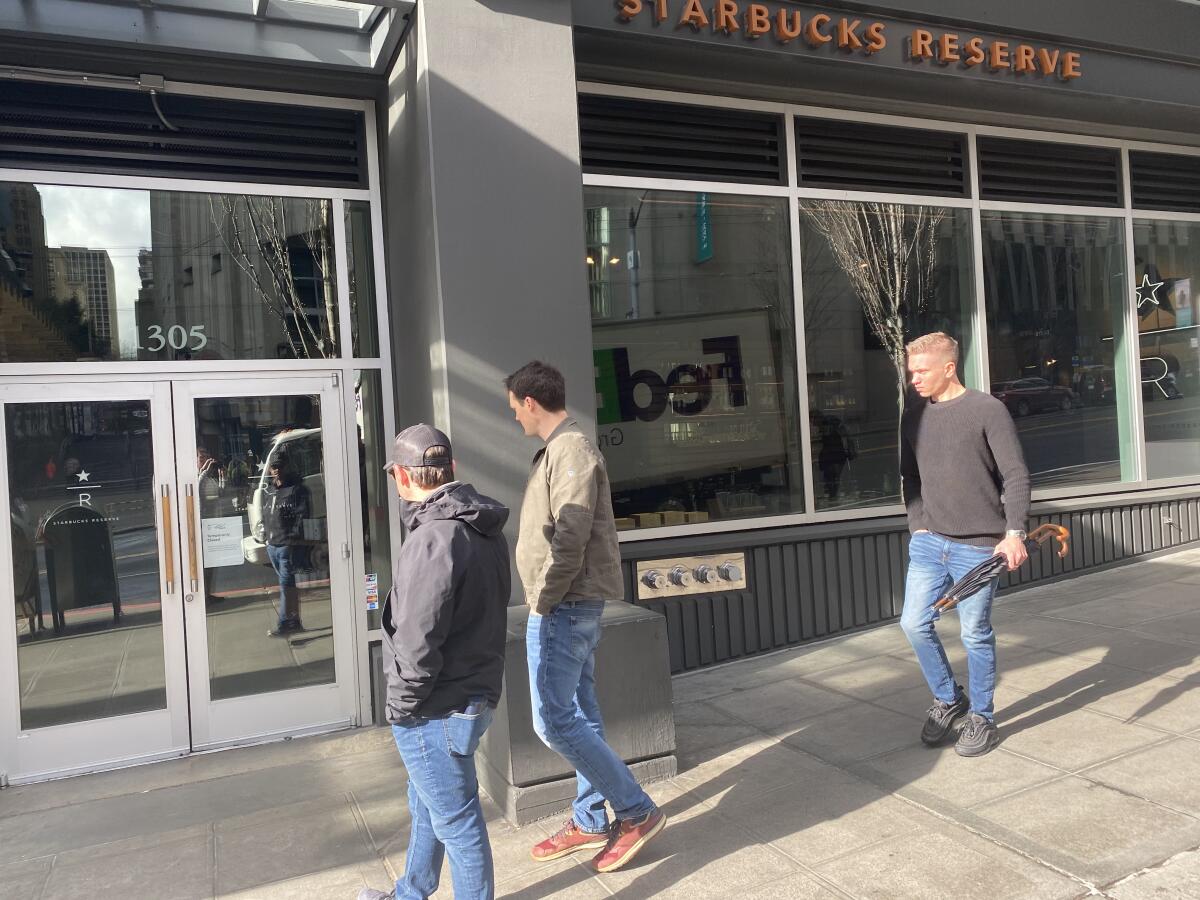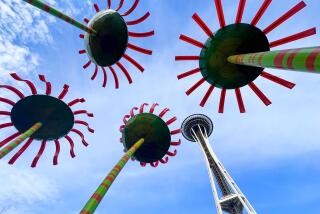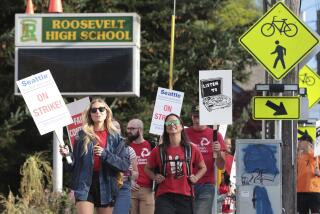To slow coronavirus spread in Seattle area, state bans gatherings of more than 250 people
SEATTLE — Washington Gov. Jay Inslee imposed the most stringent measures in the country Wednesday to slow COVID-19, banning gatherings of more than 250 people in the Seattle area, further atomizing society in the hotbed of the U.S. epidemic.
Using powers of an emergency declaration, Inslee prohibited large social, recreational and spiritual events in King, Snohomish and Pierce counties. These include sporting and faith-based events, conventions, weddings, parades, concerts, festivals and fundraising activities.
Inslee said that most schools in Washington would remain open for now, but administrators should make immediate contingency plans for potential closures. Soon after he spoke, however, administrators announced that all Seattle public schools would close on Thursday for a minimum of two weeks to disrupt infection.
Washington state’s prohibition on gatherings does not extend to airports, grocery stores or transportation systems such as buses and ferries, officials said.
The governor acknowledged that the ban would be profoundly disturbing to people’s lives. He said that after speaking with Vice President Mike Pence on Wednesday morning, he expected the U.S. government to issue consistent guidance soon.
“This is an extremely dangerous event that we are facing, but we are not helpless,” said Inslee, who was flanked by health officials and mayors at a Seattle news conference. “This prohibition could be expanded in the days to come, depending on the development of the virus.”
Dr. Jeff Duchin, the public health officer for Seattle and King County, compared the epidemic to “an infectious disease equivalent of a major earthquake that’s going to shake us for weeks and weeks.” He said he was signing a King County order prohibiting gatherings of fewer than 250 people unless organizers ensure social distancing, adequate sanitation and health checks.
Duchin said the steps would slow, not stop, the spread of the disease: “We expect a large-scale outbreak in weeks, and this will be a very difficult time,” he said.
King County Executive Dow Constantine said that the steps “will help ensure that a health crisis does not become a humanitarian disaster.” The three counties covered by the ban were chosen because they are experiencing significant community spread of the virus, Inslee said.
Inslee said that scientists project that about 25,000 people in Washington would be infected if officials don’t act, and cases could double each week. “So by mid-May, we could be looking at over 60,000 people infected,” he said.
Businesses can remain open, Inslee said. But he asked store owners and other business operators to come up with “creative and aggressive ways” to distance employees and customers.
On Wednesday, the county health agency reported four more people had died from the disease. That raised the death toll in the Seattle area to 26. Three of the newly reported deceased had been residents of Life Care Center of Kirkland, bringing the number of coronavirus deaths linked to the facility to 22. The number of confirmed COVID-19 cases in King County increased by 44, to 234, officials said.
All but one of the deaths, in central Washington, have occurred in the Seattle area. Nineteen of the deaths are linked to Life Care Center of Kirkland, a nursing home where 21 remaining residents have tested positive for COVID-19.
The virus is known to have spread to nine other Washington nursing homes and assisted living centers. On Tuesday, Inslee announced new rules requiring health screenings for people visiting such facilities.
Inslee said that Washington can serve as a template for the rest of the country as the epidemic grows. “Unfortunately we know that the rest of the nation will be where we are perhaps in a couple or three weeks,” he said.
Inslee said the restrictions — which extend through March, and are “very highly likely” to be extended — would help avoid swamping the area’s health system.
“We’re going to fight this epidemic as much as we can, and the reason is, we do not want to see an avalanche of people coming into our hospitals with limited capacity,” he said. “We may need critical care for thousands of people as we go forward.”
Inslee wasn’t specific about consequences for breaking the legally imposed ban on gatherings but said he expected widespread compliance. “The penalties are you might be killing your grandfather if you don’t do it,” he said.

The Democratic governor said that unity among government leaders will be critically important in fighting the spread of the virus. “The decisions that we’re making today, and the decisions we probably will be making in the upcoming days, are going to be profoundly disturbing to a lot of the ways we live our lives today,” he said.
Seattle Mayor Jenny Durkan, who also spoke at the news conference, said that “one of the most important things we can do ... is to speak in one voice,” as one government. “”I truly believe that this outbreak may be one of the most transformative and consequential events that we’ve had in this region and this country.”

Asked whether he felt that the measures were draconian, Inslee said: “I don’t feel it’s draconian to try to prevent another 22 people to have to lose their grandfather or uncle.”
Everett, Wash., just north of Seattle, is where coronavirus first appeared in the United States, when COVID-19 was diagnosed in a man who went to an urgent-care clinic with a fever and cough after returning from visiting relatives in Wuhan, China. The 35-year-old man was treated in a hospital isolation and has recovered.
King County is preparing a motel and modular housing to isolate and quarantine COVID-19 patients. Overriding local opposition, county commissioners approved the purchase of a motel for quarantines.
Areas of downtown Seattle appear empty this week, traffic is light, and Uber drivers report a steep downturn in ridership. Ferries have fewer passengers as commuters stay home to work.
Officials had been reluctant to close schools with no known coronavirus infection, pointing out that parents including health workers, might need to stay home to care for children. But Seattle Public Schools administrators said in a statement Wednesday that they needed to move swiftly.
“The decision to close the district was extremely difficult,” the statement said. “We know that closing our schools will impact our most vulnerable families, and we recognize that working families depend on the consistency and predictability of supports and services our schools offer.”
More to Read
Sign up for Essential California
The most important California stories and recommendations in your inbox every morning.
You may occasionally receive promotional content from the Los Angeles Times.











